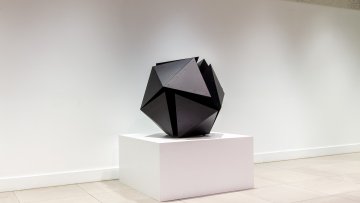15:00
15:00
A consultation on the University’s REF 2029 Code of Practice will run from early July to mid-September. As part of the consultation, Research Services are holding a series of events, opportunities to find out more about REF, ask questions and provide feedback.
Monday 21 July, 10-11am – Online information session
14:00
Uniqueness of critical points of the second Neumann eigenfunctions on triangles
Abstract
The hot spots conjecture, proposed by Rauch in 1974, asserts that the second Neumann eigenfunction of the Laplacian achieves its global maximum (the hottest point) exclusively on the boundary of the domain. Notably, for triangular domains, the absence of interior critical points was recently established by Judge and Mondal in [Ann. Math., 2022]. Nevertheless, several important questions about the second Neumann eigenfunction in triangles remain open. In this talk, we address issues such as: (1) the uniqueness of non-vertex critical points; (2) the necessary and sufficient conditions for the existence of non-vertex critical points; (3) the precise location of the global extrema; (4) the position of the nodal line; among others. Our results not only confirm both the original theorem and Conjecture 13.6 proposed by Judge and Mondal in [Ann. Math., 2020], but also accomplish a key objective outlined in the Polymath 7 research thread 1 led by Terence Tao. Furthermore, we resolve an eigenvalue inequality conjectured by Siudeja [Proc. Amer. Math. Soc., 2016] concerning the ordering of mixed Dirichlet–Neumann Laplacian eigenvalues for triangles. Our approach employs the continuity method via domain deformation.
We are pleased to announce for the fifth year our ED&I Fellowships for 2025-2026 to work alongside our divisional ED&I team and ED&I Steering Group (which includes academic, professional services and student representatives across our departments) to help develop and deliver our 2023-2026 divisional ED&I action plan, along
Watch any Glastonbury? Go to Glastonbury? Maybe not your thing? Well, controversy aside, the one thing you have to say about Glasto is that musicians have to be truly terrible to not be loved or get great reviews. The vibe is so positive that all faculties are suspended. And, you know, that's no bad thing.
Olivia Rodrigo closed Sunday night to great acclaim (unsurprisingly). So for the young and less young among you, here she is with Robert Smith of the Cure.
Advances in Multiscale Analysis and Applications
Abstract
Multiscale analysis has become a cornerstone of modern signal and image processing. Driven by the objective of representing data in a hierarchical fashion, capturing coarse-to-fine structures and revealing features across scales, multiscale transforms enable powerful techniques for a wide range of applications. In this talk, we will begin with a comprehensive overview of the construction of multiscale transforms via refinement operators, highlighting recent advances in the area. These operators serve as upsampling in the process of multiscaling. Once established, we will describe the adaptation of multiscale transforms to manifolds, and then focus on their extension to Wasserstein spaces. The talk will highlight both theoretical developments and practical implementations, illustrating the potential of multiscale methods in emerging data-driven applications. Lastly, we will explore how classical multiscaling tools such as wavelet transforms can be utilized for autoregressive image generation via large language models. We will show experimental results that indicate promising performance.


